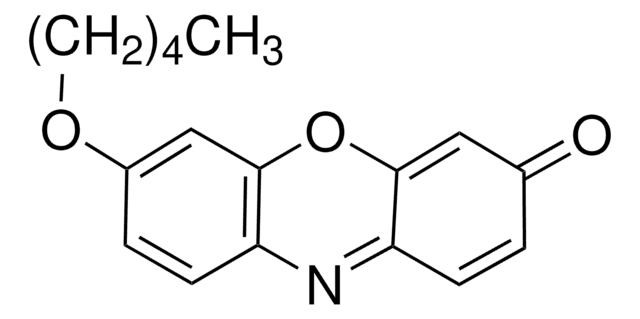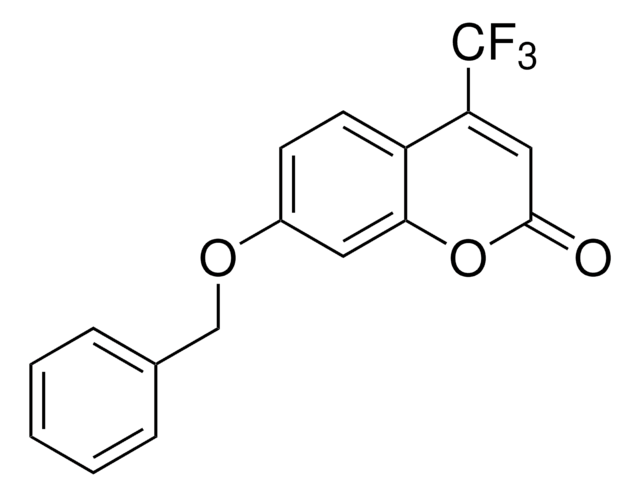B1532
Resorufin benzyl ether
CYP450 substrate, ≥98% (TLC), powder
Synonym(s):
7-Benzyloxy-3H-phenoxazin-3-one, 7-Benzyloxyresorufin, O7-Benzylresorufin
About This Item
Recommended Products
product name
Resorufin benzyl ether, CYP450 substrate
Quality Level
Assay
≥98% (TLC)
form
powder
solubility
chloroform: 9.80-10.20 mg/mL, clear, orange
storage temp.
2-8°C
SMILES string
O=C1C=CC2=Nc3ccc(OCc4ccccc4)cc3OC2=C1
InChI
1S/C19H13NO3/c21-14-6-8-16-18(10-14)23-19-11-15(7-9-17(19)20-16)22-12-13-4-2-1-3-5-13/h1-11H,12H2
InChI key
XNZRYTITWLGTJS-UHFFFAOYSA-N
Substrates
Signal Word
Warning
Hazard Statements
Precautionary Statements
Hazard Classifications
Eye Irrit. 2 - Skin Irrit. 2 - STOT SE 3
Target Organs
Respiratory system
Storage Class Code
11 - Combustible Solids
WGK
WGK 3
Flash Point(F)
Not applicable
Flash Point(C)
Not applicable
Personal Protective Equipment
Certificates of Analysis (COA)
Search for Certificates of Analysis (COA) by entering the products Lot/Batch Number. Lot and Batch Numbers can be found on a product’s label following the words ‘Lot’ or ‘Batch’.
Already Own This Product?
Find documentation for the products that you have recently purchased in the Document Library.
Customers Also Viewed
Articles
Phase I biotransformation reactions increase drug compound polarity, mainly occurring in hepatic circulation.
Phase I biotransformation reactions increase drug compound polarity, mainly occurring in hepatic circulation.
Phase I biotransformation reactions increase drug compound polarity, mainly occurring in hepatic circulation.
Phase I biotransformation reactions increase drug compound polarity, mainly occurring in hepatic circulation.
Our team of scientists has experience in all areas of research including Life Science, Material Science, Chemical Synthesis, Chromatography, Analytical and many others.
Contact Technical Service









